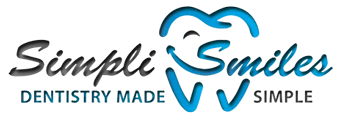Do you often wake up feeling tired and groggy even after a full night's sleep? Do you snore loudly or feel shortness of breath during the night? If so, you may have sleep apnea. Sleep apnea is a common yet serious condition that affects millions of people worldwide, but many remain undiagnosed.
What is Sleep Apnea?
Sleep apnea is a sleep disorder that causes interrupted breathing during the night. There are two main types of sleep apnea: obstructive and central. Obstructive sleep apnea occurs when the muscles in the back of your throat fail to keep the airway open, while central sleep apnea happens when your brain fails to send proper signals to control breathing.
Regardless of which type you have, it can lead to significant health problems if left untreated. When you stop breathing for even brief periods, it can cause oxygen levels in your body to drop and increase carbon dioxide levels. This puts extra stress on your heart and lungs, leading to high blood pressure, stroke, or heart attacks.
The Different Types of Sleep Apnea
Sleep apnea is a sleep disorder where breathing repeatedly stops and starts. There are three main types of sleep apnea: obstructive, central, and complex.
Obstructive sleep apnea is the most common type and occurs when there's a blockage in the airway. This can be due to excess tissue in the throat or tongue that collapses during sleep. People with obesity or enlarged tonsils may also experience this type.
Central sleep apnea happens when the brain doesn't send proper signals to breathe during sleep. This can be caused by medical conditions like heart failure or stroke, as well as certain medications.
Complex sleep apnea syndrome (also known as treatment-emergent central sleep apnea) is a combination of both obstructive and central types. It occurs when someone with obstructive sleep uses continuous positive airway pressure (CPAP) therapy but continues to have central events.
It's important to note that regardless of which type one has, untreated sleep apnea can lead to serious health problems such as high blood pressure, heart disease, and strokes.
Symptoms of Sleep Apnea
Symptoms of sleep apnea can vary depending on the type and severity of the condition. The most common symptom is loud snoring, which may be interrupted by pauses or gasps for breath. Other symptoms include morning headaches, dry mouth or sore throat upon waking up, and excessive daytime sleepiness.
Additionally, people with sleep apnea may experience trouble concentrating, memory problems, irritability, depression, and mood swings. They may also have a tendency to fall asleep during activities such as reading or watching television.
Another symptom that often goes unnoticed is bruxism (teeth grinding). This occurs because when you stop breathing in your sleep and wake up partially to start breathing again, it puts stress on the jaw muscles causing teeth clenching/grinding.
It's important to note that not everyone with sleep apnea experiences all these symptoms. In fact, some sufferers don't realize they have it until their bed partner informs them about their loud snoring or other nighttime behavior.
If you experience any of these symptoms regularly, it might be worth getting checked out by a medical professional to potentially diagnose if you are suffering from obstructive sleep apnea (OSA) or another form of this disorder.
Causes of Sleep Apnea
There are several factors that can lead to sleep apnea. One of the most common causes is obesity. When a person gains weight, especially in their neck area, it puts pressure on their airways and obstructs breathing during sleep.
Another cause of sleep apnea is genetics. Studies have shown that people with family members who suffer from the condition are more likely to develop it themselves.
Nasal congestion and allergies can also contribute to sleep apnea as they make it difficult for air to pass through the nose properly. Smoking and drinking alcohol before bed can relax muscles in the throat, leading to breathing difficulties during sleep.
Sleep apnea may also be caused by anatomical abnormalities such as a deviated septum or enlarged tonsils, or adenoids that obstruct airflow.
Underlying medical conditions like hypertension and diabetes have been linked to an increased risk of developing sleep apnea.
Treating Sleep Apnea
Treating sleep apnea is crucial to improve the quality of life. There are various treatment options available depending on the severity and type of sleep apnea. Mild cases can be managed by incorporating lifestyle changes, such as losing weight, avoiding alcohol and smoking, and sleeping on your side.
Continuous Positive Airway Pressure (CPAP) therapy is one of the most common treatments for moderate to severe obstructive sleep apnea. It involves using a machine that delivers air pressure through a mask worn over the nose or mouth during sleep.
Oral appliances are another option for treating mild to moderate sleep apnea, particularly in patients who cannot tolerate CPAP therapy. These devices reposition the jaw and tongue to keep the airway open.
Surgery may also be recommended for those with severe cases of obstructive sleep apnea who do not respond well to other treatments. The surgery aims to remove excess tissue from the throat or repair abnormalities in nasal passages or facial structure.
Treating sleep apnea is essential for better health outcomes. Consult a healthcare professional if you suspect you have symptoms of this condition so they can recommend appropriate treatment options based on your individual needs and medical history.
To learn more, you can get in touch with us through online consultation or by calling us, and we'll guide you further. Call (516) 336-4902 to book an appointment at our Hicksville office and (516) 756-0111 for the Farmingdale office.
